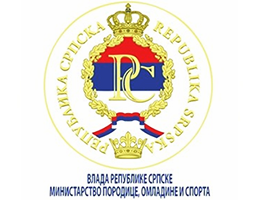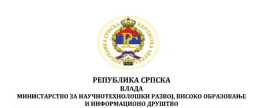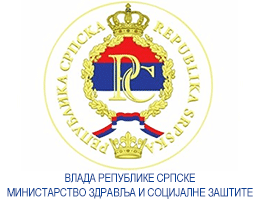VALORIZATION OF A QUESTIONNAIRE INTENDED FOR MEASURING THE QUALITY OF DANCE CLUB SERVICES
Volume 11, Issue 1 (2021)
Volume 11, Issue 1 (2021)
VALORIZATION OF A QUESTIONNAIRE INTENDED FOR MEASURING THE QUALITY OF DANCE CLUB SERVICES
Abstract:
Empirical transversal study was conducted with the aim of checking the validity of the questionnaire or measuring the quality of services in a dance club. The research sample consisted of a total of 194 respondents, users of the services of the Dance Club “Gemma” Banja Luka (active members). Subsampling w as performed through two research areas: (1) in relation to gender (M = 31; F = 163) and (2) in relation to the user experience- length of training in the club (up to 1 year; from 1 to 3 years; from 3 to 7 years; more than 7 years). As a research instrument, a modifi ed questionnaire SQKC (Service Quality of Karate Club) was used to assess the quality of services in the karate club, which in this case was used as a scale for individual assessment of the quality of sports services in the dance club and consists of 15 indicators of sports services. Respondents expressed their assessment by rounding off the numbers on a fi vepoint Likert-type scale. The results obtained by surveying the respondents show that the club provides high quality services (average score 4.16). Discriminant analysis found that user experience and gender did not aff ect the perception of the quality of sports services. When identifying the internal agreement of the scale used, it was determined that the scale has good internal agreement Cronbach’s Alpha =, 932), which indicates its good metric characteristics. The questionnaire used should also be checked at other dance clubs, and the good metric characteristics of the SQDC (Service Quality of Dance Club) questionnaire are expected to prove reliable.
Keywords:
dance club, SQDC questionnaire, quality of services
Full Text:
DOI:
References:
Bartlett, M.S. (1954). A note on the multiplyng factors for various chi square approximations. Journal of the Royal Statistical Society, 16 (Series B), 296-298.
Campbell, D. (2002). Outcomes assessment and the paradox of nonprofi t accountability. Nonprofi t Management and Leadership, 12(3), 243- 259. http://ucanr.org/sites/ceprogramevaluation/fi les/113732.pdf
Cairns, B., Harris, M., Hutchison, R., & Tricker, M. (2004). Improving Performance? The Adoption and Implementation of Quality Systems in UK Nonprofi ts. Birmingham, UK: Centre for Voluntary Action Research, Aston Business School.
Carr, J.W. & De Michele, P. (2010). Original Research Service Quality and Satisfaction Within Campus Recreation: The Moderating Role of Identifi cation. Recreational Sports Journal, 34(1), 9-23.
Currie, M.E & Ipson, M.N. (2002). Perceptions of quality services delivery in community recreation. In: Jackson, E. (ed.) (2002). Abstract of Papers Presented at the Tenth Canadian Congress on Leisure Research, Edmonton: Faculty of Physical Education and Recreation, 152-155.
Cronin J. J., & Taylor S. A. (1992). Measuring Service Quality: A Reexamination and Extension. Journal of Marketing, 56 (3), 55-68.
Dačić, D. (2014). Valorizacija sistema sportksih usluga karate kluba na osnovu stavova i mišljenja njegovih korisnika. Magistarska teza. Novi Sad: Fakultet za sport i turizam. [in Serbian]
DeVellis, R. F. (2003). Scale development: Theory and applications (2nd ed.). Thousand Oaks, California: Sage.
Evans, J. R., & Lindsey, W. M. (2010). The management and control of quality. USA: South-Western Pub/Thomson.
Hegazy, A.E.F. (2012). Total Quality Management in Saudi Arabia Judo and Taekwondo Federation. World Journal of Sport Sciences, 6(4), 473-477.
Ivanović, M. (2011). Strategija društvenog marketinga u pozicioniranju neprofi tnih organizacija. Beograd: Fakultet organizacionih nauka, doktorska disertacija. [in Serbian]
Jae Ko, Y. & Pastore, L.D. (2004). Current Issues and Conceptualizations of Service Quality in the Recreation Sport Industry. Sport Marketing Quarterly, 13, 158-166.
Kattel, R. (1966). The scree test for the number of factors. Multivariate Behavioral Research, 1(2), 245-276.
Kaiser, H. (1970). A second generation Little Jify. Psychometrika, 35, 401-415.
Kaiser, H. (1974). An index of factorial simplicity. Psychometrika, 39, 31-36.
Kaplan, R. S. (2001). Strategic Performance Measurement and Management in Nonprofi t Organisations. Nonprofi t management & Leadership, 11(3), 353-370.
Kelley, S.W & Turley, L.W. (2001). Consumer perceptions of service quality attributes at sporting events. Journal of Business Research, 54(2), 161-166.
Lee, J.H., Duck Kim, H., Ko, Y. & Sagas, M. (2011). The infl uence of service quality on satisfaction and intention: A gender segmentation strategy. Sport Management Review, 14(1), 54-63.
Milanović, D. (2013). Teorija treninga. Zagreb: Kineziološki fakultet. [in Croatian]
Nešić, M. (2008). Sport i menadžment. Novi Sad: Tims. [in Serbian]
Nešić, M. (2013). Značaj evaluacije sportsko-rekreativnih usluga od strane njihovih korisnika. U: Jovanović, M, (Ur.), međunarodna naučna konferencija ‘’Sportske nauke i zdravlje’’, Zbornik radova, Banja Luka: Panevropski univerzitet Apeiron, Fakultet sportskih nauka, 30-41. [in Serbian]
Nešić, M., Dačić, D., & Srdić, V. (2014). Korisnička percepcija sistema sportskih usluga karate kluba. Sportske nauke i zdravlje, 4(2), 121-130. [in Serbian]
Pallant, J. (2009). SPSS priručnik za preživljavanje. Beograd: Mikro knjiga.
Packianathan, Ch., & Kyungro, Ch. (2000). Targets and Standards of Quality in Sport Services. Sport Management Review, 3(1), 1-22.
Parasuraman A, Zeithaml V. A, & Berry L. L. (1988). SERVQUAL: A Multi-Item Scale for Measuring Consumer Perceptions of Service Quality. Journal of Retailing, 64 (Spring), 21-40.
Perić, D., Nešić, M., Dačić, D., Ahmetović, Z., Srdić, V., & Milosavljević, S. (2017). The assessment of quality of sports services in karate clubs based on users’ perception. Archives of Budo, 13(1), 131-137. [in Serbian]
Srdić, V., & Lolić, V. (2011). Faktorska struktura organizacije plesnog kluba. Sportske nauke i zdravlje, 1(2), 107-113. [in Serbian]
Tsitskari, E., Tsiotras, D.& Tsiotras,G. (2006). Measuring service quality in sport services. Total Quality Management & Business Excellence, 17(5), 623-631.
Zagorc, M. (2000). Družabni in športni ples. Ljubljana: Plesna zveza Slovenije, Združenje plesnih vaditeljev, učiteljev in trenerjev. [in Slovenian]






